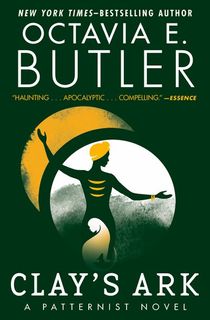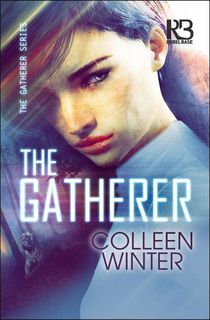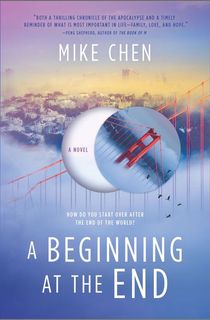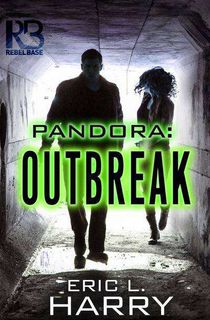As the coronavirus spreads across the globe, a common refrain is that the outbreak seems like something out of science fiction. To many the disease, and the governmental response to it, is reminiscent of apocalyptic plague novels like Stephen King's The Stand or Emily St. John Mandel's Station Eleven. These comparisons are so common that Stephen King has even encouraged his social media followers to stop relating COVID-19 to the devastating pandemic in his novel.
It's tempting to catastrophize, start comparing current events to fiction, and default to anxiety and panic. After all, who wants a real-world equivalent of Captain Trips or Georgian Flu?
But during this period of coronavirus-inspired anxiety and uncertainty, it's also important not to discount some of the most important messages of apocalyptic and post-apocalyptic stories. This genre can teach us just as much about hope, community, and resilience as it can about the potential for worst-case scenarios.
It also allows readers to consider how we would preserve our own humanity during desperate times, and helps us put our anxieties in perspective. After all, Stephen King is right — coronavirus isn't the hellish outbreak depicted in The Stand.
No one is more familiar with the potential of the genre than the authors of apocalyptic fiction themselves. We reached out to writers who have written about the end of the world, and asked them to share their thoughts on the capacity of apocalyptic fiction to instill hope amidst horror.

Wanderers
In Chuck Wendig's Wanderers, much of America is impacted by a mysterious affliction that leaves its sufferers sleepwalking across the country, heading to an unknowable destination. Although the disease at the heart of Wanderers is deeply unsettling, what's scarier is its depiction of how the remainders of society will collapse.
Wendig explains that the book highlights humanity's collective strength to show how we might endure in the face of an epidemic.
"Wanderers is a book about a pandemic that happens during an election year (oops, sorry?) — but though the subject matter is at times dark, I wanted to depict a humanity that also came together during crises, that had moments of love and hope, even when things felt hopeless.
Because that’s what we find in crises, despite what some fiction would have us believe: people coming together as a community, not isolating as enemies. Hope and humor help to balance out the horror, and give us a model for how we can maintain both in dark times, too." -Chuck Wendig

Clay's Ark
In Clay's Ark by the late Octavia E. Butler, a family traveling through Arizona is blackmailed into visiting a desert colony of people suffering from a terrible epidemic. The afflicted have quarantined themselves, but the disease can't be contained forever.
Although the illness explored in Clay's Ark is deeply upsetting, Butler's novel also encourages readers to think beyond their individuality and imagine a future radically different from the present. Betsy Mitchell was Octavia's editor at Warner Books for eight years, overseeing Butler's backlist as well as the publication of Parable of the Sower and Parable of the Talents. Mitchell shared her thoughts on Clay's Ark with The Portalist:
"There's no denying that Octavia's books presented some grim futures, and the alien plague she portrays in Clay's Ark—which violently changes the very nature of humanity—is definitely grim. But she was also brilliant at depicting how each of us, no matter what situation we face, has the power to make choices."-Betsy Mitchell

The Gatherer
In The Gatherer, an innovation in renewable energy leads to a deadly plague, and government corruption and rampant misinformation complicate efforts at containment. Winter explains,
"One of the most powerful aspects of speculative fiction is that it explores the potential challenges that humans may face, and more importantly, how we will rise to meet those challenges.
We are an incredibly resilient species and the multitude of ways that we have adapted to dire situations in our past informs my writing with a strong belief that whatever the world throws at us, we will persevere." - Colleen Winter

Detonation Event
In John Andrew Karr's Mars Wars series, humans have finally made it to the Red Planet. But a traitor within the Mars Orbiter Station One crew has sent potentially-deadly microbes hurtling towards Earth. Captain Ry Devan and Dr. Karen Wagner must use every ounce of courage to prevent their home planet from an unprecedented pandemic.
"Speculative fiction teleports the imagination beyond an often harsh reality. Reading and writing, we enter new realms where dangers abound, but where we can share in courageous confrontation.
We often return to reality with a boost to our own capabilities. Perhaps we were bloodied and weary of the struggle, or even down and out, but we rise to resume the good fight. For in a mortal existence where the end is certain, pushing onward makes a world of difference." -John Andrew Karr
RELATED: Space-tacular Books Like The Martian

Shattered Roads
Alice Henderson's Skyfire Saga envisions a dystopian future where humans must live in megacities guarded from the extreme weather caused by climate change. Citizens use media addictions to distract themselves from a doomsday asteroid hurtling towards the planet. But even in this bleak society, one renegade group — the Rovers — remains committed to science, and is determined to protect Earth from certain devastation.
"I believe post-apocalyptic fiction is a powerful way to envision a likely future where little was done to prevent the climate crisis or species extinction. We read of these dire futures that are all too possible, and when we put down the book, we're relieved that we're not there yet. There is still time. There is still hope. But we must act now.
Post-apocalyptic fiction can also bring hope by creating worlds we can aspire to. In my Skyfire Saga, a group of survivors have built a sophisticated city that uses renewable energy and sustainable plant-based food sources, and they have restored ecosystems.
To inspire people and give them hope, let's create more visions of advanced societies whose choices improve the standard of living for everyone, including wildlife." - Alice Henderson
RELATED: 8 Vital Sci-Fi Climate Change Books

A Beginning at the End
Author (and Portalist writer) Mike Chen's second novel, A Beginning at the End, is set in San Fransisco six years after a plague decimated much of the population. It follows a group of survivors as they attempt to rebuild their communities, even while facing the potential of a second pandemic.
Although A Beginning at the End deals with themes that are particularly unsettling in today's current climate, it also offers an invaluable reminder of humanity's resilience and connection, even during times of extreme uncertainty.
"What doors are opened by catastrophe? I think historically, when we've been faced with significant trauma, that has created change for better and worse: culturally, logistically, even on an internal emotional level.
In A Beginning at the End, I really wanted to explore persevering through the cataclysm AND its ensuing changes in an effort to become whole again. Because even in the darkest times, we're presented with the possibility of doing the right thing — whether that's committing to be a better person after tragedy or rethinking the way society works as a whole.
Trauma can be debilitating and change can be scary, and sometimes you can't stop either of those. But it is possible to become a better person — or society — when you make it to the other side. And often times, getting there means choosing to act right and be more empathetic instead of hiding from the pain."-Mike Chen

Pandora: Outbreak
In Eric L. Harry's Pandora trilogy, an outbreak of Pandoravirus horribilis causes uncontrollable rage in the infected, and even America's most respected epidemiologists aren't safe. Throughout the trilogy, families attempt to protect each other, but often that means fighting one of their own...
"Apocalyptic fiction stresses ordinary men and women under extreme conditions, triggering an innate survival instinct that is present in all living organisms. But in humans, that primal urge to live has developed a stunningly complex companion psychology that is fertile ground for an author: pain and fear motivate avoidance of harm at a base level; and bravery and cowardice reward or punish their respective behaviors at the higher levels of self-reflection.
But it is hope, or the lack thereof, that often decides whether someone has the will to go on against all odds, or succumbs to a crippling resignation that paralyzes their further attempts at self-preservation."- Eric L. Harry

The Book of M
In Peng Shepherd's haunting post-apocalyptic novel, a phenomenon called the Forgetting makes people's shadows disappear, along with their memories. Married couple Ory and Max are determined to protect each other — and memories of their happiness — from the scourge. Shepherd told The Portalist that in many ways, novels like The Book of M are fundamentally hopeful:
"On the face of it, post-apocalyptic fiction seems like a grim genre, but part of the reason I enjoy writing it so much is because it’s actually a very inherently hopeful one. It isn’t about the tragedy and loss of the end of the world; in the post-apocalypse, the world has already ended, and the focus is on the future: what we can rebuild, who we can become, what we can change for the better this time." -Peng Shepherd
RELATED: Contagion Is a Warning About Lies in Times of Crisis

Experimental Film
In this Canadian horror novel, a film critic discovers a mysterious figure in the footage of an obscure movie. Author Gemma Files spoke to The Portalist about how the novel explores humanity's fascination with oblivion, and reminds us that 'Hell on Earth' will always be subjective.
"From the beginning, Experimental Film was a book about a lot of different things that have obsessed me over the years, linked through the medium of not so much a haunted film (though there's obviously one of those) but a haunted image, something recurrent and inescapable, something that poisoned all attempts to capture or re-interpret it creatively.
The image itself is based on something that literally burnt its way into our original artist's mind—Mrs Whitcomb, lost amateur collector of fairy-tales, painter and filmmaker, who made the movie our protagonist becomes obsessed with—during a particularly traumatic moment in her childhood, the week her father decided to make the entire family goes out into the fields and wait for the world to end.
Like a lot of people around end of the 19th century, her father believed in an exclusionist millennial fin-de-ciecle which would provide both a fresh new beginning for the faithful and hideous punishment for everybody else, though in this case, his version of God didn't show up....
But something else did, bringing along with it a vision of a very different, though similarly perfected, world.
Given that this is a book written by the mother of an autistic son, someone whose eventual acceptance of her own child as not being different rather than 'wrong' has a lot to do with her acceptance of herself as being similarly 'abnormal,' I guess it makes sense that Experimental Film is also very much about how everyone's version of heaven on earth is always going to be someone else's version of hell." -Gemma Files
[Note: This title is temporarily unavailable.]



